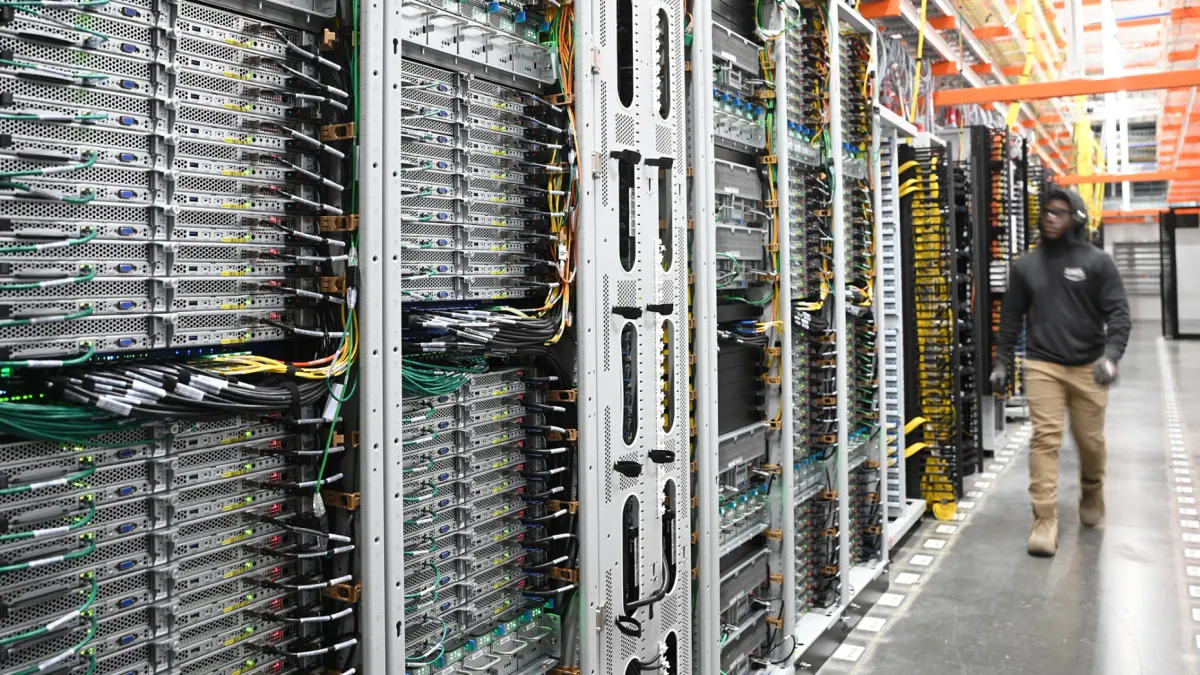Dive Brief:
-
Companies representing up to 15 GW of load — primarily for data centers — are seeking service from American Electric Power utilities by 2030 with “many, many” more gigawatts possible from hundreds of inquiries from potential customers, Ben Fowke, AEP interim president, CEO and director, said during an earnings call Tuesday.
-
In Ohio, surging load growth is sparking discussions in business communities and at the state level about whether utilities should own power plants again, according to Fowke. “I think that would take legislation … so that we'd be assured of good [cost] recovery and potentially any kind of stranded cost risk,” he said.
-
AEP will likely sue the Environmental Protection Agency over a suite of regulations issued last week affecting the power sector, including greenhouse gas, coal ash and wastewater discharge rules, according to Fowke. “You never like to have to sue, but we're going to do what we have to do to defend our grid and our customers that use that grid,” he said.
Dive Insight:
AEP’s first quarter earnings call highlighted two pressing issues affecting the power sector: growing demand for electricity from manufacturing facilities and data centers combined with environmental regulations and state policies that could lead to fossil-fueled power plant retirements.
AEP expects the additional load will help AEP’s utilities keep their rates affordable as they gain customers to share costs, Fowke said, noting the utilities are developing new tariffs that require data centers to meet load expectations to ensure new interconnection infrastructure will be fully used.
“The key to capturing this commercial and industrial growth is to work with parties to make sure that commitments are real and secure, the tariffs and contracts are fair to all customers and growth is self-funded,” Fowke said. “And of course, that the load can be met.”
Fowke pointed to two examples of the emerging load. Amazon.com’s cloud computing unit Amazon Web Services on April 25 said it planned to spend $11 billion over the next decade building a data center complex in Indiana Michigan Power’s service territory in northern Indiana.
A day later, Google said it broke ground on a $2 billion data center complex in Fort Wayne, Indiana, and would work with Indiana Michigan Power to bring new clean energy resources to the local grid to support the technology company’s goal to run all its data centers and campuses on carbon-free energy by 2030.
While AEP’s overall weather-normalized retail sales increased 2.9% in the first quarter from the year-ago period, its commercial sales, which includes data centers, jumped 10.5% in the quarter compared to the same quarter in 2023, AEP said in its earnings presentation.
“This is a trend we expect to continue over the next several years as the growth of AI and other technologies boost the need for additional data storage and processing,” said Charles Zebula, AEP executive vice president and chief financial officer. “Driving the demand are existing and new projects that have ramped up more quickly than first anticipated, especially with some of our largest customers in Ohio and Texas.”
AEP plans to spend $43 billion on capital investments from 2024 through 2028 — with 64% dedicated to distribution and transmission systems — but Fowke expects spending will need to increase to improve grid resiliency and handle load growth.
“As we get out further in the decade, I think, it's going to be a function of additional transmission and perhaps even generation that will need to get built to meet it all,” he said.
Having a strong balance sheet will be critical “as you enter, I think, an extended era of higher [capital expenditure] growth,” Fowke said. AEP could raise capital by selling assets, he said.
On the financial front, AEP’s first-quarter earnings jumped to $1 billion, or $1.91/share, up from $397 million, or 77 cents/share a year ago. Not including one-time items, operating earnings increased to $670 million, or $1.27/share, in the quarter from $572 million, or $1.11/share, in the same period in 2023.
AEP’s utilities have 5.6 million customers in Arkansas, Indiana, Kentucky, Louisiana, Michigan, Ohio, Oklahoma, Tennessee, Texas, Virginia and West Virginia.















